The state of Karnataka, with its rich cultural heritage and diverse populace, has been a melting pot of political ideologies and leadership over the years. The Chief Ministers who have helmed the state have left indelible marks on its socio-economic landscape, shaping its trajectory of progress and development. Let’s embark on a journey to explore the contributions and legacies of the former Chief Ministers of Karnataka.
Chief Ministers of Karnataka
Since India’s independence in 1947, Karnataka has witnessed 24 Chief Ministers, beginning with K. Chengalaraya Reddy. The state, originally named Mysore, was renamed Karnataka on November 1, 1973. Devaraj Urs served as the first and longest-serving Chief Minister, with a tenure of seven years starting in 1970. H. D. Deve Gowda, Karnataka’s Chief Minister, later became India’s 11th Prime Minister. B. D. Jatti, another former Chief Minister, served as India’s 5th Vice President. B. S. Yediyurappa, the first BJP Chief Minister, ranks as the fourth longest-serving CM. Karnataka experienced Presidents rule six times briefly. Major ruling parties include INC, BJP, JDS, and JNP.
Inaugural Chief Minister of Karnataka

After India gained independence in 1947, K.C. Reddy emerged as a prominent figure in the Mysore Chalo movement, advocating for self-governance in Mysore. His activism led to his appointment as the inaugural Chief Minister of Karnataka State, a role he held from 1947 to 1952. Throughout his term, Reddy concentrated on establishing the foundations of governance, emphasizing agricultural improvements, rural progress, and infrastructure development.
Current Chief Minister of Karnataka
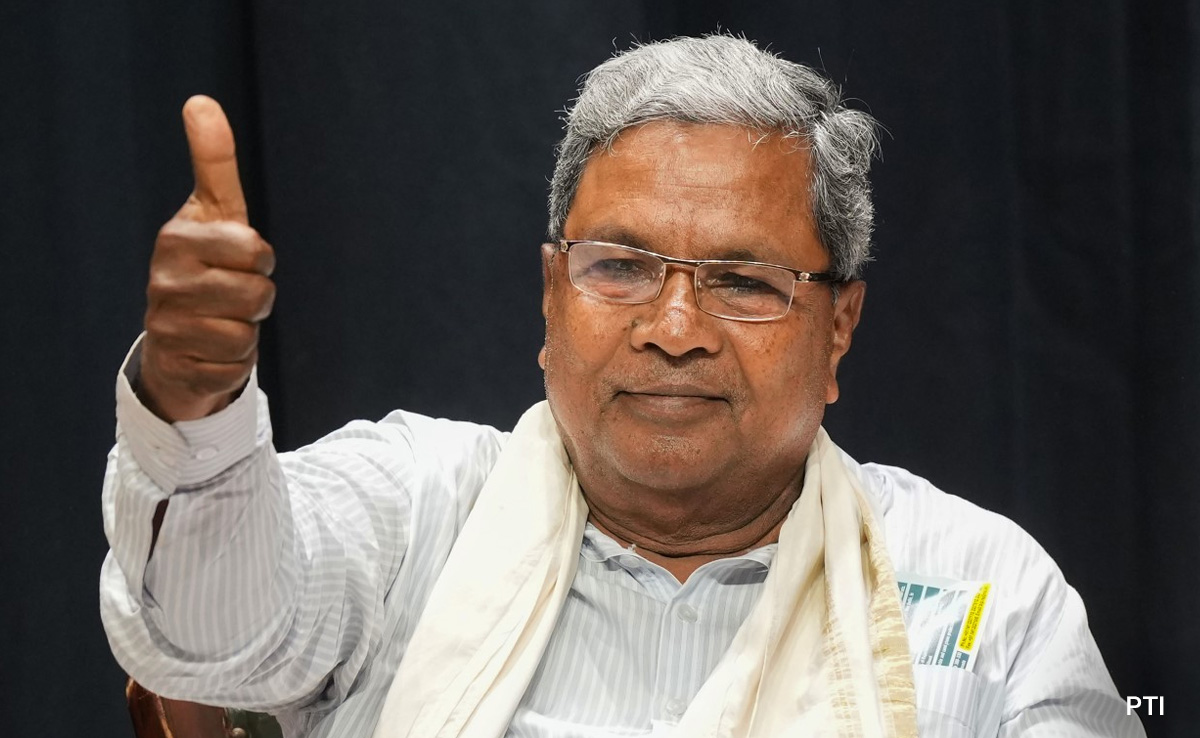)
Siddaramaiah, born on August 3, 1947, and affectionately known as Siddu, is an Indian politician currently serving as the 24th Chief Minister of Karnataka since 2023. His tenure focuses on governance reforms, social welfare programs, and economic development, marking a continuation of his longstanding political career in the state.
Longest Serving Chief Minister of Karnataka

Devaraj Arasu, Karnataka’s longest-serving Chief Minister, held office for an impressive seven-year term starting in 1970. His leadership was characterized by significant reforms and developmental initiatives, shaping the state’s socio-economic landscape during a transformative period. Arasu’s enduring legacy underscores his pivotal role in Karnataka’s governance and progress.
List of Former Chief Ministers of Karnataka
Since India’s independence in 1947, Karnataka has witnessed 24 Chief Ministers, beginning with K. Chengalaraya Reddy.
Here is the complete list of former Chief Ministers of Karnataka:
| Former Chief Ministers of Karnataka | |||
| S. No. | Name | From | To |
| 1. | K. Chengalaraya Reddy | 25 Oct 1947 | 30 Mar 1952 |
| 2. | K. Hanumanthaiah | 30 Mar 1952 | 19 Aug 1956 |
| 3. | Kadidal Manjappa | 19 Aug 1956 | 31 Oct 1956 |
| 4. | S. Nijalingappa | 01 Nov 1956 | 16 May 1958 |
| 5. | B. D. Jatti | 16 May 1958 | 09 Mar 1962 |
| 6. | S.R. Kanthi | 14 Mar 1962 | 20 Jun 1962 |
| 7. | S. Nijalingappa | 21 Jun 1962 | 28 May 1968 |
| 8. | Veerendra Patil | 29 May 1968 | 18 Mar 1971 |
| 9. | President’s Rule | 19 Mar 1971 | 20 Mar 1972 |
| 10. | D. Devraj Urs | 20 Mar 1972 | 31 Dec 1977 |
| 11. | President’s Rule | 31 Dec 1977 | 28 Feb 1978 |
| 12. | D. Devraj Urs | 28 Feb 1978 | 07 Jan 1980 |
| 13. | R. Gundu Rao | 12 Jan 1980 | 06 Jan 1983 |
| 14. | Ramakrishna Hegde | 10 Jan 1983 | 29 Dec 1984 |
| 15. | Ramakrishna Hegde | 08 Mar 1985 | 13 Feb 1986 |
| 16. | Ramakrishna Hegde | 16 Feb 1986 | 10 Aug 1988 |
| 17. | S. R. Bommai | 13 Aug 1988 | 21 Apr 1989 |
| 18. | President’s Rule | 21 Apr 1989 | 30 Nov 1989 |
| 19. | Veerendra Patil | 30 Nov 1989 | 10 Oct 1990 |
| 20. | President’s Rule | 10 Oct 1990 | 17 Oct 1990 |
| 21. | S. Bangarapaa | 17 Oct 1990 | 19 Nov 1992 |
| 22. | M. Veerappa Moily | 19 Nov 1992 | 11 Dec 1994 |
| 23. | H. D. Deve Gowda | 11 Dec 1994 | 31 May 1996 |
| 24. | J. H. Patel | 31 May 1996 | 07 Oct 1999 |
| 25. | S.M. Krishna | 11 Oct 1999 | 29 may 2004 |
| 26. | Dharam Singh | 29 May 2004 | 28 Jan 2006 |
| 27. | H. D. Kumaraswamy | 03 Feb 2006 | 08 Oct 2007 |
| 28. | President’s Rule | 09 Oct 2007 | 11 Nov 2007 |
| 29. | B.S. Yeddyurappa | 12 Nov 2007 | 19 Nov 2007 |
| 30. | President’s Rule | 20 Nov 2007 | 27 May 2008 |
| 31. | B.S. Yeddyurappa | 30 May 2008 | 31 Jul 2011 |
| 32. | D.V. Sadananda Gowda | 04 Aug 2011 | 12 Jul 2012 |
| 33. | Jagadish Shettar | 12 Jul 2012 | 12 May 2013 |
| 34. | Siddaramaiah | 13 May 2013 | 15 May 2018 |
| 35. | B.S. Yeddyurappa | 17 May 2018 | 23 May 2018 |
| 36. | H.D. Kumaraswamy | 23 May 2018 | 23 Jul 2019 |
| 37. | B.S. Yeddyurappa | 26 Jul 2019 | 28 Jul 2021 |
| 38. | Basavaraj Bommai | 28 Jul 2021 | 15 May 2023 |
| 39. | Siddaramaiah | 20 May 2023 | Incumbent |
Functions of a Chief Minister
The Chief Minister of a state in India holds a pivotal role in governance, with key functions including:
- Executive Leadership: The Chief Minister serves as the head of the state government, providing executive leadership and direction to the administration.
- Policy Formulation: They play a crucial role in formulating policies and programs for the state, addressing various socio-economic issues, and ensuring effective governance.
- Cabinet Head: The Chief Minister heads the Council of Ministers, overseeing their functioning and coordinating policy decisions.
- Legislative Responsibilities: They represent the state government in the state legislature, formulating and presenting bills, and participating in debates and discussions.
- Administration Oversight: The Chief Minister is responsible for supervising the functioning of various government departments and agencies, ensuring efficient delivery of public services.
- Budgetary Allocation: They play a key role in the preparation and presentation of the state budget, allocating funds for different sectors based on priorities and requirements.
- Law and Order: Ensuring law and order in the state is another crucial function of the Chief Minister, working closely with law enforcement agencies to maintain peace and security.
- Interstate Relations: The Chief Minister represents the state in interstate meetings and negotiations, fostering cooperation and coordination with other states on various issues.
- Constituency Representation: They represent the interests of their constituency and constituents, addressing their grievances and concerns through various channels.
- Crisis Management: During times of crisis, such as natural disasters or emergencies, the Chief Minister plays a central role in coordinating relief and rehabilitation efforts, ensuring the safety and well-being of the citizens.


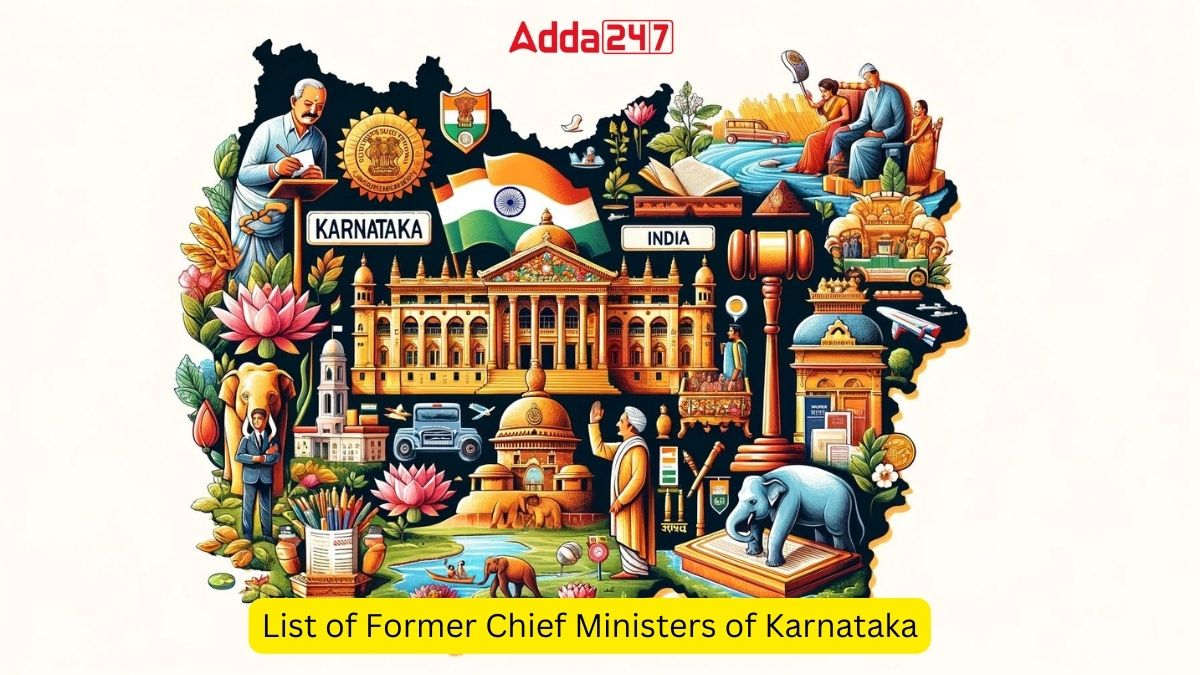

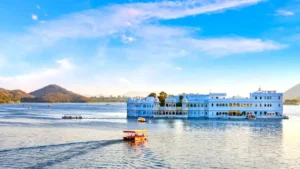 Which Lake is known as the Jewel of Udai...
Which Lake is known as the Jewel of Udai...
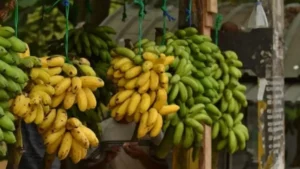 Which is the Largest Banana Producing St...
Which is the Largest Banana Producing St...
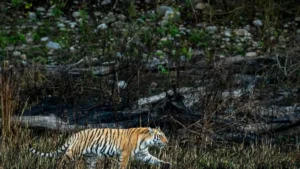 Which is the First Tiger Reserve of Utta...
Which is the First Tiger Reserve of Utta...








